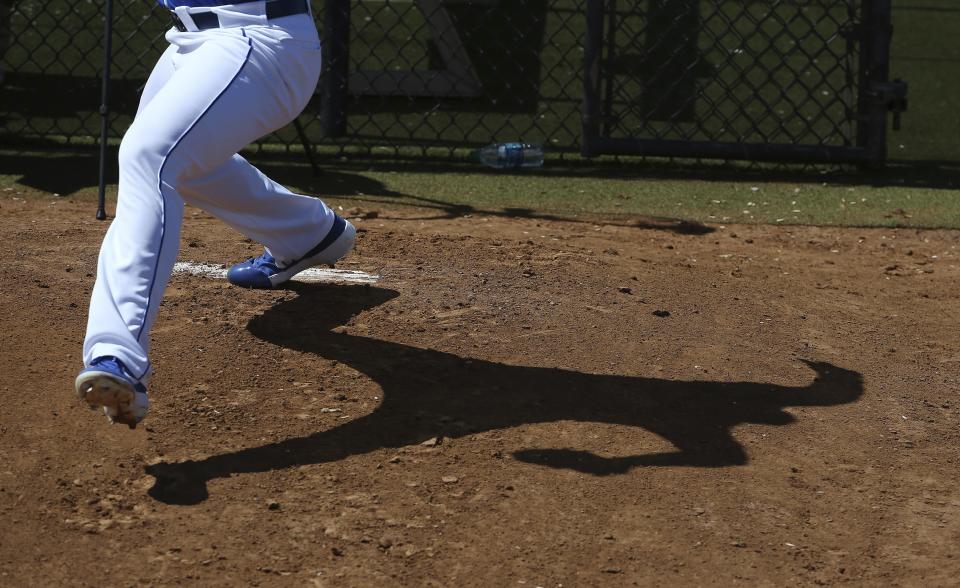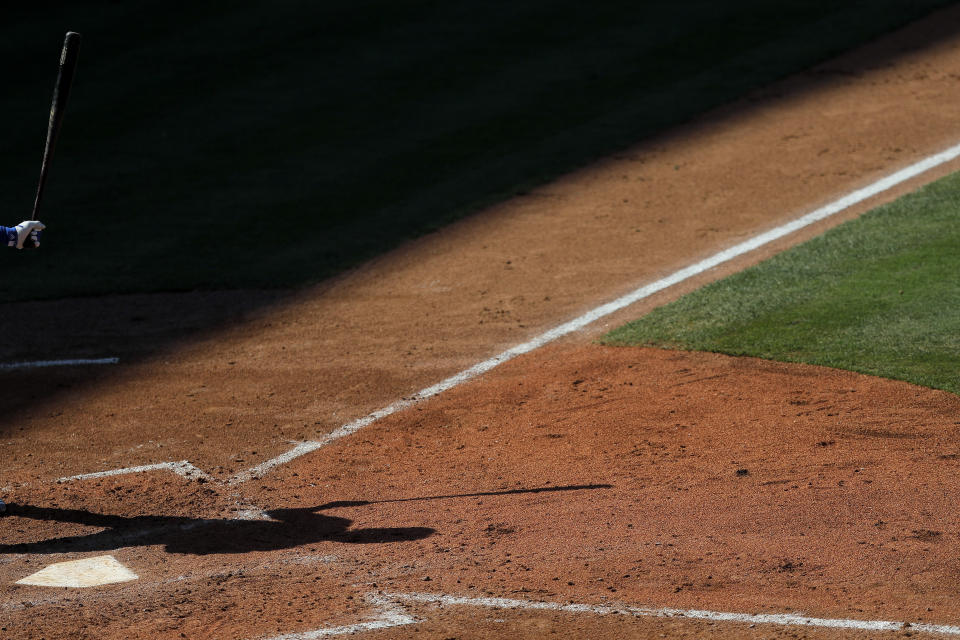Are we OK with that? By playing in a pandemic, MLB forces players to calculate the risks
Before the testing, monitoring and sequestering of hundreds of professional baseball players and hundreds more personnel, it’s fair to ask what we have the stomach for.
Sixty men per team, 30 teams, across 60 games. Into the teeth of this thing. Trotting toward the virus, if not in an all-out run, the integrity of the pursuit somewhere between that of an ER nurse and a Comal River tuber.
“When and where” is here, a time and place wearing thin because of rising coronavirus cases, public protocol backpedals and rewarmed fears the worst is still out there somewhere.
The business of baseball is reopening into what amounts to a four-month dip into the bog of what is known and what is not, a crisis managed by those with one eye on human casualties and the other on election day. The rest is batting practice.
So, baseball players, their coaches, their staffers, all the people who tend to the details that present themselves by 7 o’clock as a big-league ballgame, are tasked with keeping calm and carrying on. That means performing. That means entertaining. That means putting something on TV that isn’t recommended by an algorithm and scored by Rotten Tomatoes. It also means pulling a paycheck, just as it means shining up the brand and enriching the man who pays everyone.
That means staying virus-free or surviving the alternative, not for the welfare of the game, but for the good of the guy who wakes up one morning with a slight fever and a sore throat. And then it gets complicated, well beyond the plan to test, treat, quarantine and contact trace, then test again.
MLB and the players union agreed that high-risk players may opt out of the season and receive full pay and service time. Healthy players, some of whom might have high-risk family members at home, may opt out but not necessarily receive pay or time. Four players took that option Monday, first Diamondbacks pitcher Mike Leake, then Nationals teammates Ryan Zimmerman and Joe Ross, and later Rockies outfielder Ian Desmond.

Coaches, clubhouse attendants, medical staff and other potentially vulnerable personnel are not covered. In a precarious circumstance, if they were, say, cancer survivors or pre-diabetic, or if someone at home were, they would have to rely on the compassion of their team’s management.
“This is a very personal decision and matter,” Los Angeles Dodgers president of baseball operations Andrew Friedman said this week. “We want people to feel comfortable to bring up if they’re concerned, scared or whatever the case may be. We want to have those conversations with staff, with players. We’ve definitely had a few conversations with a few players who are concerned, not necessarily to the level of opting out.”
With still several weeks to navigate before a scheduled July 23 opening day, both in and out of the baseball bubble, and with thousands of tests coming before the first fungo is struck, what will be baseball’s tolerance?
Is one sick player too many? What if that player has a history of asthma? What if his child does?
How about fifty? A hundred? A coach or two or 20? An umpire? An entire crew?
How much carrying on will be expected? Right up until the 60-man roster runs out, to the last nine men?
There is a healthy baseball player, a veteran pitcher, with a healthy wife and child. He is today choosing between putting them on an airplane or not, saying goodbye for four months or not, and being happy baseball is back or not.
He has less than 48 hours now to decide.
There are at least 1,800 of them, due into camps this week. Then they’ll have another few weeks to determine whether this — baseball, in a pandemic, sorting it out as it goes, almost daring something to go wrong — is a worthwhile activity.
“I don’t really want to play, not like this,” one player said. “But I will.”
“I feel the same way,” another player said.
Yet another player, who has a young family, had three days to find housing. Not just any housing. It can’t be a hotel. Hotels have elevators and lobbies, and they have people in them who maybe can’t put up with a mask or an extra few seconds over a sink, or even thoughtful people whose only offense is being in the wrong place at the wrong time. Now he has two days to find housing.

Zimmerman has an infant at home. His mother, who has multiple sclerosis, is vulnerable. Before he opted out, he made a point.
“The owners aren’t going to be traveling with us,” he said. “I’m pretty sure they’re going to be hanging out at their houses, watching baseball on TV.”
A clubhouse, a team bus, a charter flight, they look a lot like a gym, a subway, a movie theater. And there’ll be people in there with diabetes or heart ailments or asthma or one of those afflictions thus far hidden inside a fit, youthful body.
The game promises to take care of them the best it can. There are safety procedures. There is testing. It’s been argued players will be safer where they’re going than where they’re coming from.
They’re not working in an emergency room, a health clinic or, for that matter, manning a grocery store cash register. Some of them are wealthy enough to sit it out and see what next spring brings.
On Friday, 16 of 302 NBA players tested positive for the coronavirus. The league did not release the results of testing non-playing personnel.
Are we good with that? Does that sound manageable? More importantly, the men who tested positive and their families, are they good with that?
“Part of the challenge here is there are a lot of unknowns,” Friedman said. “I think there’s no question we’re going to have a decent number of positive tests in spring training and the season. And to me it’s much more about how quick we are to respond to that, the treatment options, the quarantining part of it, making sure it doesn’t spread among the group. And to the extent that we can contain it -- and we have really good health and safety protocols in place, collectively, as a group, everyone working together -- I think it’s something we can manage.
“But, anyone who pretends they can sit here today and tell you exactly how things are going to play out, I don’t subscribe to that. I don’t agree with it. There’s a lot we don’t know.”
They’re going to try to play. It would look like a much more honest endeavor had they not just spent a month-and-a-half quarreling over who would make the money from it. But, here we are. The game will be welcomed back, even amid empty ballparks in a shortened season, because some is better than none. The sacrifices, hopefully, are temporary.
Meantime, it will be important to remember who is making those commitments. That they are as uncertain about this as you would be. That they have lives wrapped around those games, navigating the same unsteady world you are, and now it’s time to go back to work. That, when they test positive for a virus that can be deadly, either to themselves or someone else, they are more than a roster transaction. Some, presumably, will stay home.
We’re going to have to have the stomach for that, too.
More from Yahoo Sports:


